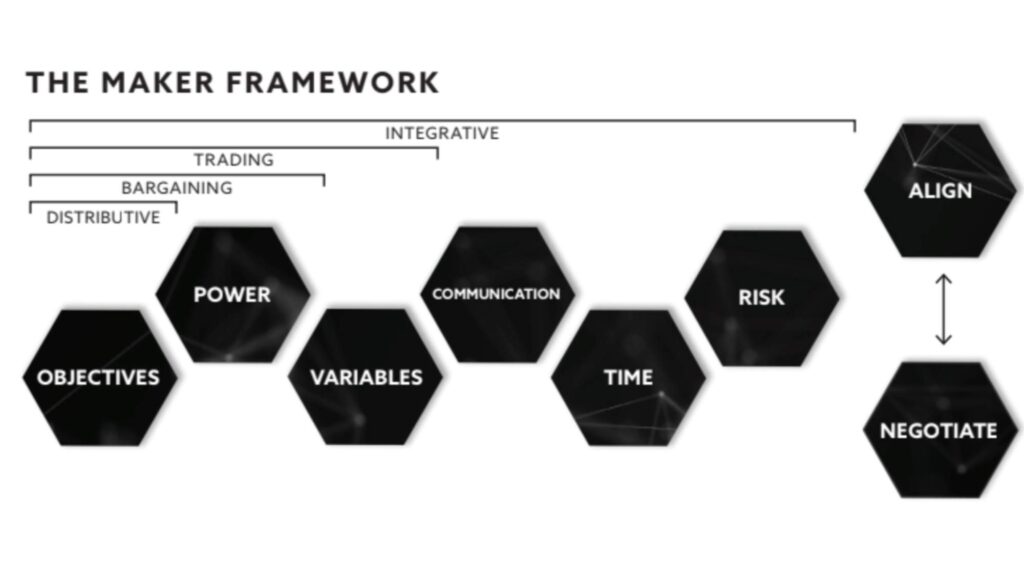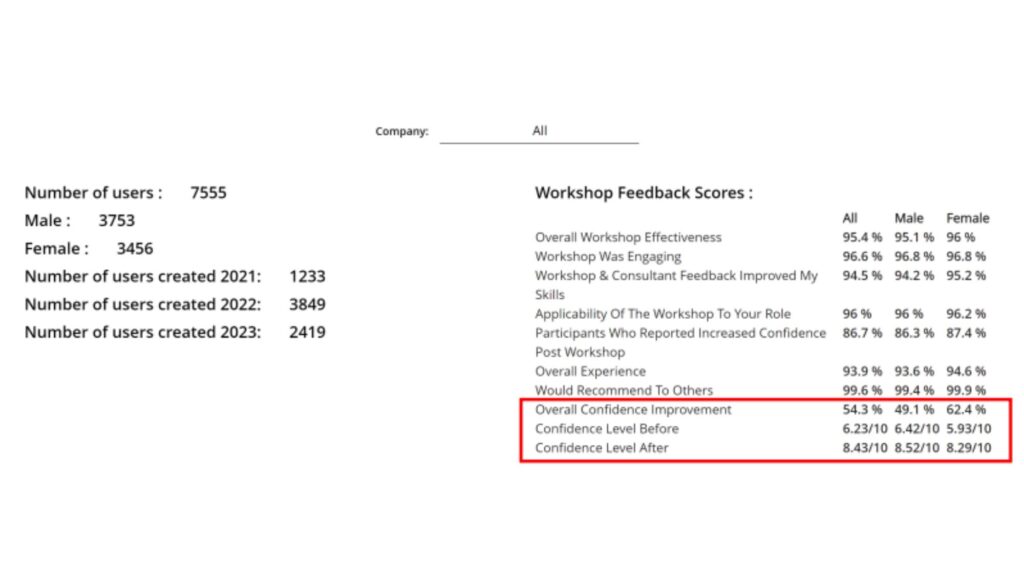Navigating confidence levels in negotiations is a pivotal skill. The lack or overabundance of confidence can determine success or potential breakdowns in the process.
There is a thin line between exuding reassuring confidence and alienating your opposing party with arrogant overconfidence. Understanding the root causes of overconfidence, how to recognize when it surfaces, and how to overcome it will help you strike the right balance for effective communication.
Going forward, we’ll review the potential negative effects of overconfidence in negotiations, ranging from lack of preparation to unprofessionalism. We’ll provide tips on how to avoid common pitfalls and ensure your negotiation approach enhances — rather than hinders — a successful outcome.
Table of Contents
- Is Confidence Necessary in Negotiation?
- Is It Possible To Be Overconfident in Negotiations?
- What Is Overconfidence in Negotiations?
- What Does Overconfidence in a Negotiation Look Like From a Behavioral Standpoint?
- 5 Potential Negative Effects of Overconfidence in Negotiations
- What Leads to Overconfidence?
- How Do You Deal With Overconfidence Bias?
- The Maker Group: Cultivating a Confidence Balance in Negotiation
Is Confidence Necessary in Negotiation?
Yes, confidence is a key factor in successful negotiation endeavors. If you are not confident walking into a negotiation, you’ll be less capable of:
- Performing at a high level.
- Standing up for what you believe is the best outcome.
- Being as direct as you need to be.
If you’re not confident in your approach and strategy, you’ll likely capitulate more than you should and allow the other party to perpetually lead the negotiation.
The best way to ensure you’re confidently going into a negotiation is to dedicate the time necessary for planning, preparation, and strategizing.
Is It Possible To Be Overconfident in Negotiations?
While confidence is essential in negotiation, it is possible to be overconfident, which can be detrimental to the process and even lead to total negotiation breakdowns.
The Maker Group’s negotiation workshops focus on building skills that help your team find a confidence balance — the right blend of assertiveness and self-assurance without any off-putting arrogance.
What Is Overconfidence in Negotiations?
Generally speaking, overconfidence is the overestimation of one’s abilities, judgment, and eventual success. In negotiations, overconfidence has an added layer of underestimating the abilities of a negotiator’s counterparts.
Overconfidence is a critical mental error that can:
- Prevent you from paying attention to important information.
- Lead you to miscalculate projected outcomes by making incorrect assumptions.
- Create the appearance of condescension and an unwillingness to collaborate or explore alternative options.
An example of overconfidence in negotiation is opting not to spend the necessary time in the preparation phase of deal-making. An overconfident negotiator may walk into a negotiation thinking they don’t need a communication strategy or an offer and counter-offer strategy. They assume they know who and what they’re up against — and they believe they are the better negotiator.
What Does Overconfidence in a Negotiation Look Like From a Behavioral Standpoint?
An overconfident negotiator is likely to be someone who leans more heavily toward combative negotiation tactics such as:
- Abrasive behavior
- Competitive behavior
- Lack of reciprocity
- Gaslighting
- Undermining the position of their counterpart
They may also be someone who uses conflict to their advantage whether it’s appropriate or not — they play the role of the bully. They don’t listen and aren’t interested in what the other party has to say.
5 Potential Negative Effects of Overconfidence in Negotiations
If you walk into a negotiation room overly confident of your abilities and the outcome, it’s very possible that you will leave the room having failed to achieve your goals. You may also alienate your negotiating counterparts and burn bridges in your business relationships.
At The Maker Group, our goal is to help our clients develop a self-assuredness that balances confident negotiation tactics with a healthy respect for every step of the negotiation process. Contact us today to learn how we can help curb overconfidence that can lead to the following negative side effects.
#1: Lack of Preparation
If you’re overconfident about an upcoming negotiation, you’re probably not going to put in the appropriate amount of planning and preparation that is required to be effective.
In short, being overconfident often equals being under-prepared — you’re less likely to:
- Do in-depth research.
- Anticipate the opposing party’s questions and counter-arguments.
- Have the statistics and facts needed to dispute counter-arguments.
Being underprepared puts you at a distinct disadvantage. Not only will you impress upon your counterparts that you’re uninformed and ill-prepared, but you’ll likely perform poorly and fail to succeed.
#2: Inability To Listen
Overconfidence can impede your ability to be open-minded and actively listen — making you the bully in the room.
A fair and competent negotiator listens to different viewpoints and opinions and welcomes debate on the merit of each argument brought to the table.
Listening to and reflecting on your counterpart’s position(s) may lead to a solution or proposition you hadn’t considered that could benefit both parties. Conversely, if you’re bullheaded and unwilling to listen, you risk shortchanging everyone involved.
#3: Unprofessionalism
Strategies that stem from overconfidence, like employing combative behaviors, can be extremely unprofessional.
For example, making the opposing party play defense. While forcing your counterpart to take a defensive position during a negotiation can be a viable tactic, putting the opposite party on defense from the get-go and keeping them there for the duration can feel highly combative.
This can be perceived as patronizing, condescending, and disrespectful — all hallmarks of unprofessional behavior.
#4: Inflexibility
Successful negotiations are about give and take, being willing to compromise, and recognizing when conceding in certain areas is in your best interest.
Ideally, the outcome of a negotiation is one that all parties are comfortable with. If, due to overconfidence, you are not willing to be flexible because you’re certain you have the upper hand and will “win,” your opposing party will likely bristle.
You must be willing to be flexible enough to make your counterpart feel that their preferences will be considered. Otherwise, they may be unwilling to continue discussions or reach an agreement.
#5: Potential Loss of Future Business
Any of the above negative effects of overconfidence may lead to a loss of both repeat business and new business.
Parties who have negotiated with someone who is overconfident may be unwilling to work with that person or their employer again. Moreover, peers talk to one another. Companies who hear about negative experiences with a negotiating team are less likely to do business with them.
Because an air of overconfidence can be a singular reason a company might opt out of establishing a business relationship, it’s crucial to develop negotiation skills that keep you from being overconfident.
What Leads to Overconfidence?
Research shows there are three classes of factors that may trigger feelings of overconfidence:
- Cognitive factors:
- Availability bias: difficulty imagining all the ways an event can unfold.
- Anchoring bias: the tendency to anchor to one idea.
- Confirmation bias: looking for confirmation that supports an initial view rather than seeking information to disconfirm it.
- Physiological factors: there is a biochemical response of euphoria that is often felt after a personal or professional success. The feeling of this “high” can lead to overconfidence in future endeavors.
- Motivational factors: the need to believe in our ability to succeed, even if it’s unrealistic that we will. This distortion of reality is sometimes essential, though — the motivation of believing in oneself is requisite if taking a risk is necessary for forward progress.
How Do You Deal With Overconfidence Bias?
In negotiations, all three of the above factors may come into play. Overcoming overconfidence bias in negotiation requires practicing self-awareness. It requires you to ask questions that challenge each of the causal biases that come into play to keep them in check.
Implementing the following suggestions can help.
Never Skip the Preparation Stage of Negotiation
A negotiation outcome will be affected by the amount of preparation that takes place before the actual negotiation even begins.
We cannot overstate the importance of the preparation phase. It’s during this phase that you will:
- Ensure that you have all the information. There shouldn’t be any gaps in your knowledge about the history of the issues at play, the current state of affairs, or the desired outcomes of each party.
- Research the other party — their strengths and weaknesses, their interests and goals, etc.
- Strategize and look for win-win situations by using a collaborative approach to identify areas of common ground.
Taking the necessary time to prepare shows that you respect the time and efforts of the opposing party and aren’t overconfident in an outcome you assume will develop.
Look for Someone To Play Devil’s Advocate
We are often blind to alternate outcomes because we focus too intently on one path. During your preparation, it’s a good idea to ask others to question your approach and any assumptions you’re making.
The key here is to ensure your peers are willing and able to give you critical and well-thought-out feedback. You should not seek the opinions of people who tend to tell you what you want to hear.
Plan for the Opposite To Be True
As you strategize responses and counter offers to your initial guesses or assumptions about what your counterpart may say or do during the negotiation, you should also stop and consider how you would respond if they do or say the complete opposite.
However unlikely it might be for them to take the opposite path or approach, you’ll be prepared if they do.
Looking at opposites may also help you find merit in an alternate outcome or see a solution you would have missed otherwise.
The Maker Group: Cultivating a Confidence Balance in Negotiation
Our goal at The Maker Group is to guide you toward a confident negotiation style that fosters collaboration and respect.

The Maker Framework
A good negotiator knows that the planning process of negotiating accounts for about 80% of the success of the outcome. No matter how confident you feel about an upcoming negotiation, the planning and preparation steps should never be overlooked.
Our exclusive Maker Framework negotiation planning tool is a rigorous 8-step process — six of which are planning phases:
- Understand the objectives
- Have a clear idea of the power dynamics that will exist in your negotiation
- Assess all variables
- Prepare for effective communication
- Map out key events — timing is everything
- Perform a risk assessment
- Negotiate
- Align all parties to ensure all necessary actions are taken
Workshops
The Maker Group has three levels of negotiation workshops, each of which contributes to confidence-building in negotiation:
- LV1: Your Introduction to Negotiation. This is a self-led virtual course that can serve as an introduction to all aspects of negotiation or a refresher course for experienced negotiators.
- LV2: Establishing Your Negotiation Foundation. This is an experiential workshop that can be taken in person or virtually. This course reviews how to assess a negotiation type and related implications, introduces a defined process for planning and preparing negotiations, and more.
- LV3: Gaining the Edge in Negotiation: This is an intensive workshop for small groups that can be delivered virtually or in person. We teach appropriate behavioral strategies, provide an understanding of why people do what they do, and more.
We’re confident in the ability of our workshops to foster the right confidence level to bring to your future negotiations, and we have the data to back it up.

All workshop participants are asked to rate their negotiation confidence levels before and after completing a workshop. We have seen a 54.3% level of improvement in confidence across all participants.
Book a consultation today to learn more.


